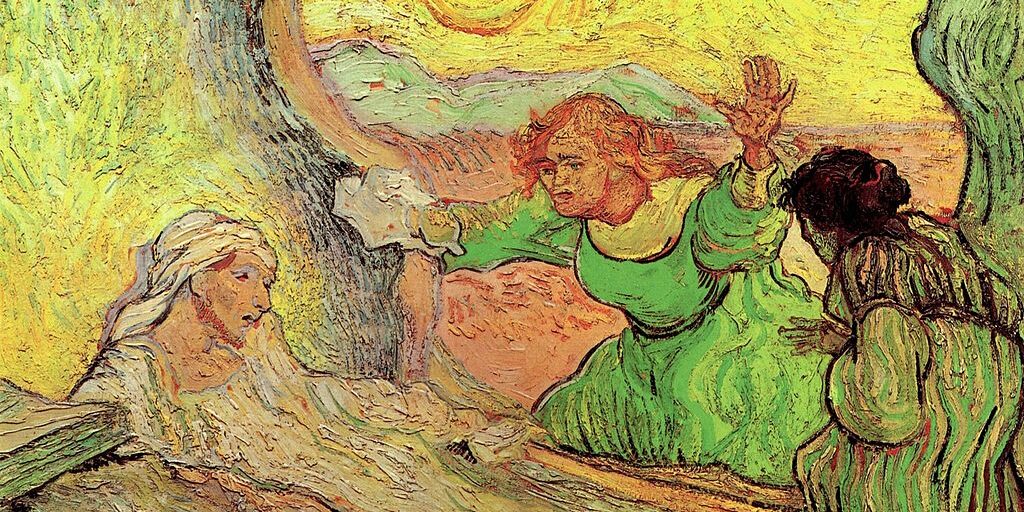
The Resurrection as the Chief Article of Our Faith
Christians will defend the historicity of Jesus’ resurrection and yet still miss its theological centrality. Machen reminds us in Christianity & Liberalism that the acts of redemptive history and their meaning are “always combined in the Christian message.”[1] According to eyewitness testimony, Jesus rose again from the dead and by it He “was declared to be the Son of God in power” (Rom 1:4). So the resurrection is not only a fact of history, but, as John Knox said, it is “the chief article of our faith”[2] and therefore our life in the local church.
When (and Why) We Worship
The Gospels are rather sparing on chronological detail, but they take pains to point out that Christ rose on the first day of the week (Matt 28:1; Mark 16:1-2; Luke 24:1, 36; John 20:1, 19, 26). So the church has always gathered on the first day (Acts 20:7; 1 Cor 16:2), “the Lord’s Day” (Rev 1:10). In the language of the early church, it is the “day of the resurrection.”[3] Memorably, B.B. Warfield declared,
Christ took the Sabbath into the grave with him and brought the Lord’s Day out of the grave with him on the resurrection morn.[4]
For too many Christians, why and when the church meets are open questions. Answers are found in this central article of the faith: on the first day of the week, Jesus rose again. We gather weekly on the Lord’s Day because we only come to God through our risen Lord Jesus.
The Bible (And How We Read It)
God is simple – uncomposed and not made up of parts – so God the Son incarnate could declare “I am… the truth” (John 14:6). We gather weekly on the Lord’s Day because we only come to God through our risen Lord Jesus. Click To TweetJesus is the standard, the archetype of truth, a claim proved by His resurrection. As truth incarnate, all of Jesus’ teachings are true. That includes His claim to be the center of the Bible, the Subject of the Old Testament (John 5:46; Lk 24:27, 44) and the promised Superintendent of the New Testament, by His Spirit through His apostles (John 16:13; Eph 2:20). In view of the resurrection, we must conclude, with Charles Hodge, “the Bible is true from Genesis to Revelation.”[5] Though we hasten to add that it means the Bible from Genesis to Revelation is also about the truth, Jesus. According to early Particular Baptist, Nehemiah Coxe, “So in all our search after the mind of God in the Holy Scriptures we are to manage our inquiries with reference to Christ.[6] We not only hold Scripture to be true, we interpret it in reference to Christ who we know is the truth because He has risen.
Assurance and Encouragement
By His resurrection, Jesus was “vindicated by the Spirit” (1 Tim 3:16).[7] With His accursed death (Gal 3:13), His obedient life demanded vindication and it was, by the Spirit “who raised Jesus from the dead” (Rom 8:11). In a word, the resurrection “justified” Jesus.[8] Since the ground of Jesus’ resurrection was His own righteousness, so the resurrection is the ground of our imputed righteousness in Him. He was “raised for our justification” (Rom 4:25). On this connection, Geerhardus Vos explains,
There is a causal connection between the justification of Christ and that of those who belong to Him… What comes to pass with the individual believer in his justification is nothing other than the personal realization of this justification of the Surety [Jesus].[9]
For our own assurance, and to encourage the fainthearted, we point first to the empty tomb. If it is empty, then so are the accusations of the evil one and our own fears of condemnation. Christians are garrisoned against every doubt by this certain fact: Christ was justified by being raised from the dead, so we have been justified in Him by faith alone.
Our Eternal Hope
Just as we are already raised with Christ from the death of our sins (Rom 6:1-3), we have hope for our coming bodily resurrection. Christ was justified by being raised from the dead, so we have been justified in Him by faith alone. Click To TweetJesus was raised as “the first fruits” of departed saints, the pledge representing the whole,[10] the “firstborn among many brothers” (Rom 8:29). As we serve one another through life’s ailments and griefs, along with meals and prayers, we encourage one another that just as Jesus rose again, so we too will rise and be forever with Him (1 Thess 4:13-18). He was raised in a “new and indivisible union of body and soul,”[11] so we too will be raised and “be like him” (1 John 3:2).
The Mission of the Church
The church’s ministry to her members and community can never be reduced to what this age calls “useful.” We are explicitly warned in 1 Corinthians 15 that if our hope in Christ is only for this life, we are pitiable (v. 19) our faith is futile (v. 17), and our existence is so empty that we can say, “Let us eat and drink, for tomorrow we die” (v. 32). But Christ has risen, so our spiritual mission looks to the horizon of the age to come. We preach, teach, and counsel His disciples that since His grave is empty, their lives and futures will never be. Click To TweetWe preach, teach, and counsel His disciples that since His grave is empty, their lives and futures will never be (1 Cor 15:58).
We also remind our world that there is a “right side to history,” but it is the risen Lord who will determine who is on it. God assured us that Christ will judge the earth “by raising him from the dead” (Acts 17:31). Unless our hearers are justified by faith in the Lord Jesus, who was justified by His resurrection, they will be judged by Him who received that authority by the same resurrection. That one event drives our mission of good news and of warning. The church is not called to transform our world, but we are to proclaim the One who will because He has risen from the grave.
The facts of history and testimony of Scripture cry, “He is risen!” In our worship and ministry, our studying and teaching, the church responds, “He is risen indeed!” We are called together as the people of the risen King.
Endnotes
[1] J. Gresham Machen, Christianity & Liberalism: Legacy Edition (Westminster Seminary Press, 2019), p. 29.
[2] John Knox, The Works of John Knox (Banner of Truth, 2014), 6:262; cited by Mark Jones, Knowing Christ (Banner of Truth, 2015), p. 162.
[3] Paul Jewett, The Lord’s Day (Eerdmans, 1972), p. 72
[4] B.B. Warfield, “The Sabbath in the Word of God,” in Selected Shorter Writings (P&R, 2001), 1:319.
[5] Charles Hodge, Systematic Theology (Hendrickson, 1999), 2:627
[6] Nehemiah Coxe & John Owen, Covenant Theology (Reformed Baptist Academic Press, 2005), p. 33
[7] On the interpretation of this clause in 1 Tim 3:16, see George Knight, The Pastoral Epistles (Eerdmans, 1992), pp. 184-85.
[8] Richard Gaffin, “The Work of Christ Applied,” in Michael Allen and Scott Swain, eds., Christian Dogmatics (Baker, 2016), p. 275.
[9] Geerhardus Vos, Reformed Dogmatics (Lexham Press, 2014), 3:221-22.
[10] See A.C. Thiselton, The First Epistle to the Corinthians (Eerdmans, 2001), p. 1223.
[11] John Beardslee, Reformed Dogmatics (Baker, 1965), p. 111

